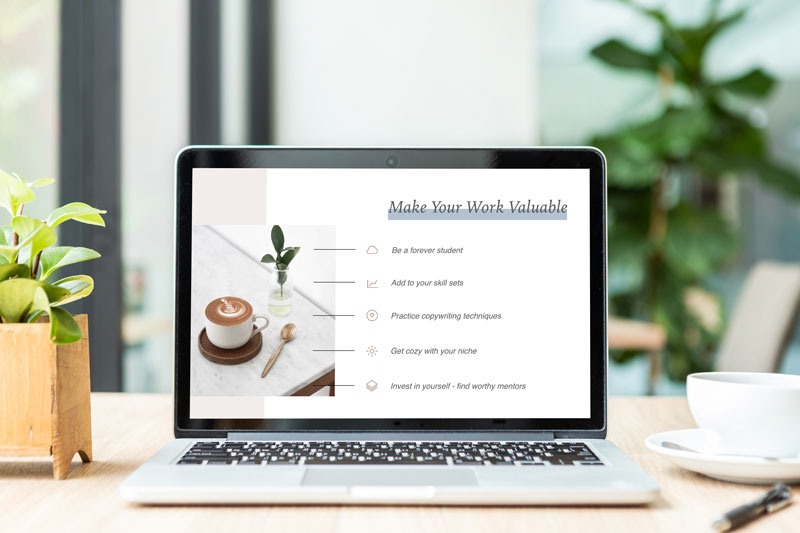
Discover the Powerful Benefits of Journaling and How It’s Easier Than Ever
Written by Hutton Murphy
What if I told you that you could:
- Relieve stress
- Clear your mind for better focus
- Improve your memory
- Boost your mood
…simply by spilling your guts on the pages of a journal?
The concept of journaling has been around for a long time. But you don’t need one of those old diaries with the tiny lock, and a key that you wear as a necklace. You know, the one you had when you were thirteen. It felt so secure – but let’s be real, that tiny diary lock didn’t offer much protection at all.
Thanks to today’s technology, there’s a much easier way to journal. No pen or paper required. And instead of keeping it hidden under your mattress, it stays with you, right on your phone or device.
But first, what are the benefits of journaling?
Journaling is an effective therapy. You don’t need an appointment. It’s there whenever you need it. And it’ll “listen” to you until you run out of things to say.
A journal is a trusted friend, one you don’t have to worry about telling your secrets to. You can vent, brag, gossip, share your dreams, and express how you’re feeling – with zero judgment.
Now, let me stop right here. You might be thinking “I’m not a writer” or “I don’t know how to even start a journal entry,” but I’m here to tell you that’s totally ok!
This is not a “Dear Diary” kind of deal, and it’s certainly not an Ernest Hemingway style of writing. Unless that’s your thing, of course – then Ernest it up. But I like to think of journaling as conversations.
You can write in your journal just like you’re talking to your best friend. The same way you’d tap out a text to your mom about your crappy day. Or the same way you convey your struggles to your therapist.
Have you ever:
- Typed out one of those long texts, then decided to delete it instead of hitting send?
- Or written a letter only to rip it up when you’re done writing it?
- Do you recall feeling better, even though no one else was going to see it?
That’s what journaling can do. It can make you feel better, help you let go, and improve your mood. Your brain accepts this as if you really did get to express how you were feeling. Sometimes, that’s all you need.
You don’t need to get the grammar right. No need for complete sentences.
This will not be graded by your high school English teacher.
So just spill it! Say what you want to say, how you want to say it. You can do that. It is your journal.
Here are three ideas for journaling and the benefits you might experience if you give them a try.
1. Journaling for Gratitude
One of my favorite ways to journal is to start the day writing down a few things I’m grateful for. This sets the tone for my day when I’m immediately focused on the positive things going on in my life.
Jay Shetty, an incredible motivational speaker, says if you’re in a state of gratitude, it’s impossible to feel any other state of being at the same time. Which means sadness, anxiety, anger, or hurt all slip away as you write, while you’re considering all the things you’re grateful for.
Because you’re focused on all the things you’re thankful for as you write, you literally can’t feel another way in that same moment. It’s like gratitude prohibits you from emotionally multi-tasking.
In the book The Slight Edge, the author, Jeff Olson, also encourages the practice of a gratitude journal. He says:
“Each morning, write down three things you’re grateful for. Not the same three every day; find three new things to write about. That trains your brain to search your circumstances and hunt for the positive. Journal for two minutes a day about one positive experience you’ve had over the past twenty-four hours. Write down every detail you can remember; this causes your brain to literally re-experience the experience, which doubles its positive impact.”
Gratitude journaling could also include bits of conversations. These are the things you want to remember and fall back on when you’re feeling blue or need some encouragement. It’s hard to recall them on the spot, in the midst of a bad day. That’s why journaling can be so powerful.
Journal things like:
- The text your best friend sent to let you know they missed you and how nice that made you feel.
- When your boss told you how much they appreciated your hard work and creativity.
- When your partner said that really sweet thing at random.
- The thing your kid said in the car on the way to school that totally cracked you up.
Rely on these words you’ve kept when you need to put a smile on your face and brighten up your day. Or even when you just feel like taking a walk down memory lane. These fleeting moments and words are treasures…and worth storing up.
2. Journaling for Mental Well-being
Do you ever think to yourself, “Here I am again, feeling stressed out in the same way I always do when I’m in this situation.” Or maybe you find yourself recognizing a familiar anxiety that creeps up on you out of the blue.
Journaling can be a great way to track that.
Taking note of these things can have a big impact on your mental well being. By having a way to review the emotions you experience in certain circumstances, you’re empowering yourself to have control over your thoughts and feelings.
We can’t always control our environments or the people we have to be in close contact with. It’s not always a choice to stay or go, sometimes you have to deal. But if you’re writing it down and reflecting, it’s so much easier to see what circumstances and situations you do have control over. Now you can decide how to manage your feelings, thoughts, and actions.
What’s so amazing is that putting this all “out there” can actually help you heal your brain from the negative experiences and emotional baggage you carry inside.
The perk: journaling can be the outlet for what’s on your mind, without the risk of a rebuttal you don’t actually want. Because the moment you hit “send” on a text, or leave a letter for someone to read, you’ve subjected yourself to the consequence of what can happen next – which is how the person receiving it will feel and respond.
Journaling can also serve as a brain dump, sometimes referred to as a brain drain. This is a way of listing out the things going on in your head. We all have times when it seems our brains just won’t turn off. We have so much floating around inside our minds:
- To-Do Lists
- Ideas
- Things we don’t want to forget
- Things we do want to forget
- Places we want to go
- Plans for the week
- People we want or need to talk to
A brain dump is basically getting all those random thoughts down in a list-like way so you can make some sense of it all. It will help you prioritize and end procrastination. The side effect is that once you’ve done this, your mind will rest a little better – which makes this a great type of journaling to do at the end of your day. You’ll gain more focus to get things done. And maybe sleep better too!
3. Journaling for Goals and Dreams
All you have to do is Google this topic to see the many statistics and studies that have shown writing your goals down is key to accomplishing them. Not only does this turn your aspirations into a list of what you want – it becomes a list of what to do.
Action is everything.
Writing down all the things you’d like to accomplish can improve your self-discipline. Putting all those thoughts rolling around in your head onto paper gives them a purpose. And now you’ve convinced your brain this has to happen!
Your words of affirmation and what you believe is possible can be the boost your brain needs for slaying your goals.
A bonus is going back through your journal and seeing what you’ve done. You write it down, you’re motivated to put in the work, you make it happen. Your dreams come to life! How’s that for a pat on the back?!

3 Ways to Make Journaling Super Easy
Now you get the idea – journaling is awesome, right? You want to get into the practice of journaling as soon as possible. You can do this a few different ways.
✤ The old-fashioned way: pen and paper. This is a great way to journal if you just love to write and doodle and create. Solid advice if journaling this way: find a great hiding spot if you want to keep your thoughts private.
✤The convenient way: on your phone, a program like Google Docs, or Microsoft Word.
Again, the drawbacks here are privacy. Whoever has access to general apps on your phone or uses your other devices could find and read your journal, if they are so inclined. The advantages would be being able to access your entries easily, lookup by dates and keyword searches, and taking your writing on the road with ease.
✤ The new way: Apps! There are several journaling apps and sites that make it easier than ever. No need to go grab your notebook from under your mattress and find a pen. You just open the app on your phone or device and you’re writing in your journal!
An additional upside other than convenience is privacy. Most of these apps have passwords, pin codes, and some even offer encryption, giving you the highest level of privacy. Adding photos is simple, quick, and doesn’t require any printing.
Having multiple journals is super easy when using an app. You can create different ones to serve different purposes.
Some would argue there is significance to actually handwriting on paper versus typing things out. However, journaling apps are the wave of the future.
If you can’t see yourself sitting down with a pen and paper, that’s ok. The benefits of using this modern way to journal will provide you with a positive experience and impress you with cool options and features.
✤ ✤ ✤ ✤ ✤
Try a couple of different types to see what suits your life best. Express your personality by including quotes that hit home for you. Add photos of people and places you love.
Whatever way you choose, you’re sure to benefit from the effects of journaling.
Your brain will thank you.







